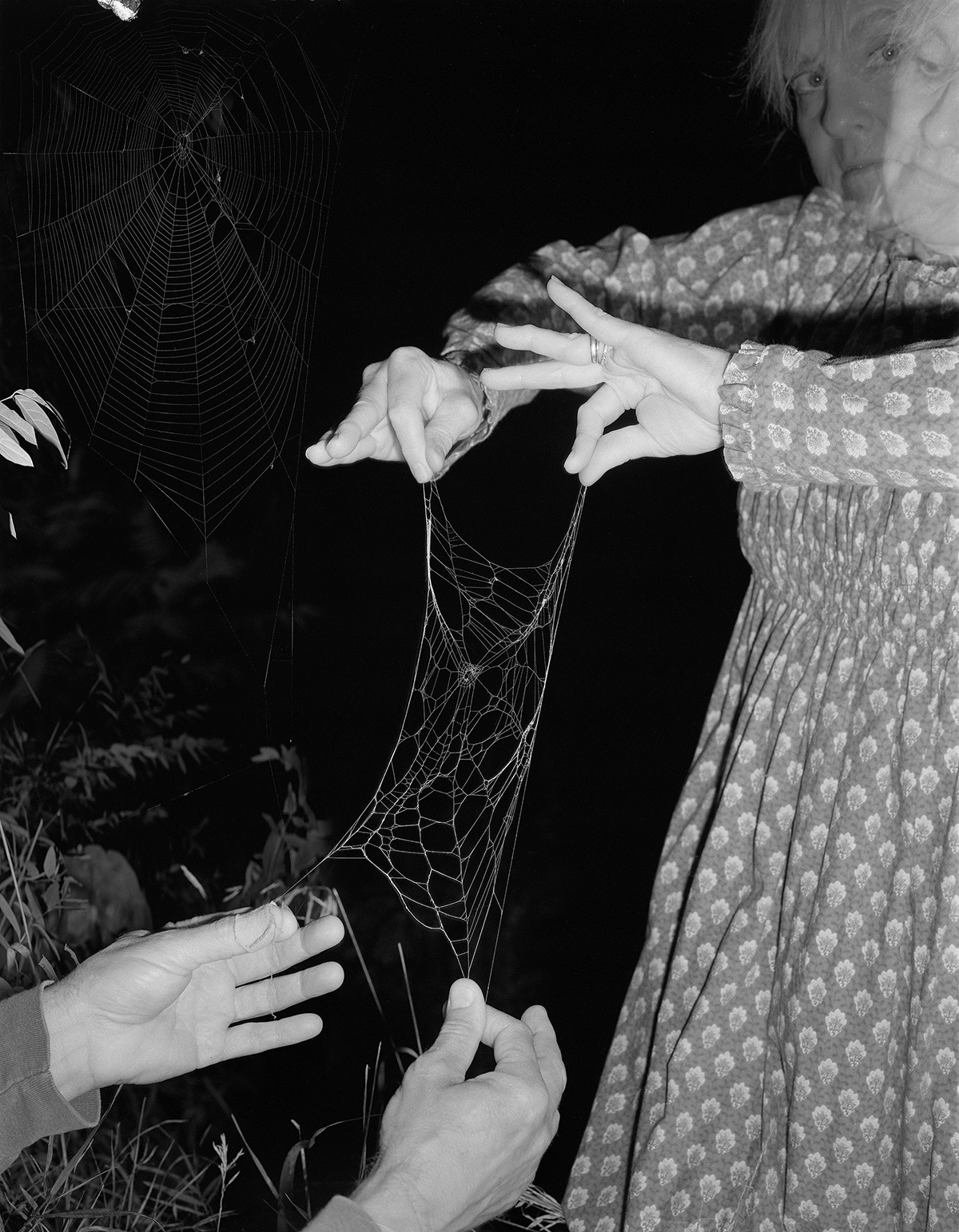© Pia Guilmoth
In Flowers Drink the River, the photographer reflects on transformation, resilience, and capturing rural Maine’s landscapes, finds Jackson Mount
Across her oeuvre Pia Guilmoth has examined the physical and psychological landscape of Northeastern America, investigating the darkness and beauty underlying overlooked corners of the country. In her previous books, Sleep Creek (2019) co-authored with Dylan Hausthor and At Night Gardens Grow (2021), she presented haunted scenes from New England and Maine. Since the release of her last book a lot has changed in Pia’s life; most notably transitioning gender and beginning Hormone Replacement Therapy. In her forthcoming monograph Flowers Drink the River Guilmoth continues to explore the environmental and emotional landscape of rural Maine but this time in the context of a period of intense change in her life. The resulting body of work is an elegy to the beauty of the change, growth and renewal that is inherent to nature.
Jackson Mount: I want to start by talking about your new book Flowers Drink the River. What is the work about?
Pia Guilmoth: In many ways the project isn’t about anything in particular. It’s more like a response to the myriad things that have happened in my life and in the world in the past few years. I always work in a fluid way like this, where each photograph isn’t about a particular thing but a conglomeration of so many emotions, or happenings. I started the work, although very sparsely, in 2022 when my world felt like it was about to collapse. I had no money and was forced to move back into my parents’ house in rural New Hampshire. I was closeted and terrified to come out, and a few hours away from my friends and any semblance of community. I was suicidal. I had no healthcare.
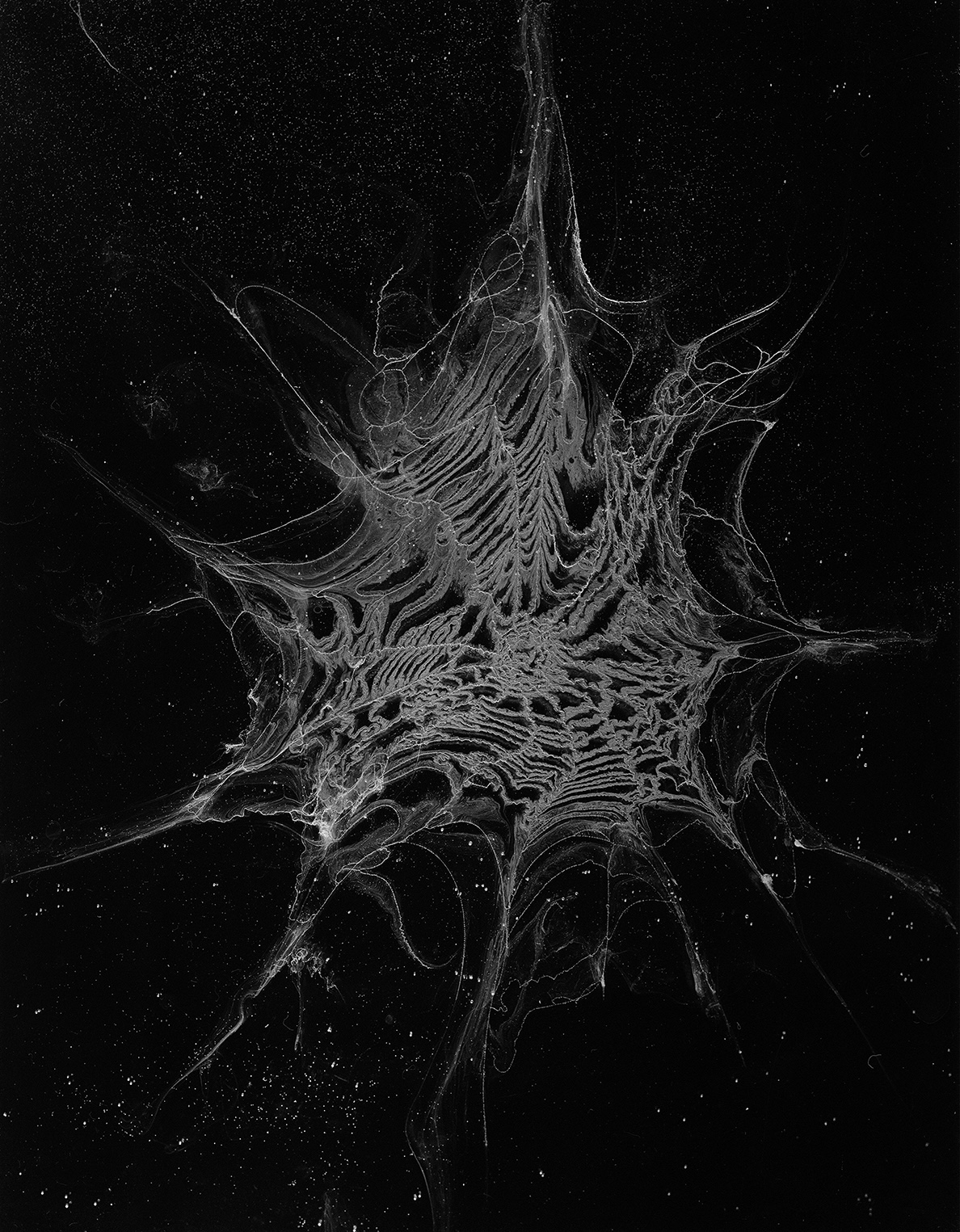
“Euphoria is a recent feeling of ‘wow this is what it feels like to have a body that feels like my own’ – I am no longer numb”
Things changed sort of abruptly when my friend told me she had an affordable place for me to live. I moved back up to rural Maine, got free healthcare, and slowly started my transition. It was still a long road to feeling alive and feeling like myself but things started feeling brighter. The hormones changed my life, my brain chemicals, my body. The work is about my transition, my chosen family, the small town I live in, the things that were with me, and the things that I lost during this journey.
JM: This project and your previous body of work take place in rural Maine. What’s your relationship to this place?
PG: In 2011 I moved a few hours from New Hampshire to Maine to study for my undergraduate degree, and soon after moved to a small island that was only accessible by boat from the mainland. I then moved up to where I am now, in central Maine, a few years ago and plan to be here for a long time. My rent is very cheap. I live in an old shoe factory with an antique store below it. The building is beautiful; it has a weathered wood exterior and the floors have over 100 years of history from when there was a mill-powered shoe factory inside – nails in the floor, glue, leather bits hammered to surfaces, old business cards and dusty antiques everywhere.
The village I live in has a population of about 1,000 people and is made up of working-class people. Most are tradespeople or farmers or work in one of the local gas stations or convenience stores. It’s a predominantly right-wing community, shit can get very scary at times – especially being a trans woman. There are places that I stay away from at all times unless I’m with friends or my girlfriend. From the outside, you would never imagine any young gay or trans people live in a place like this but “we” are out here.
Despite the safety risks and the lack of resources or gay and trans communities I could never live somewhere else. I hate cities and I love the slow way of life out here. I love being able to wander around for hours on the backroads and not see a single person.
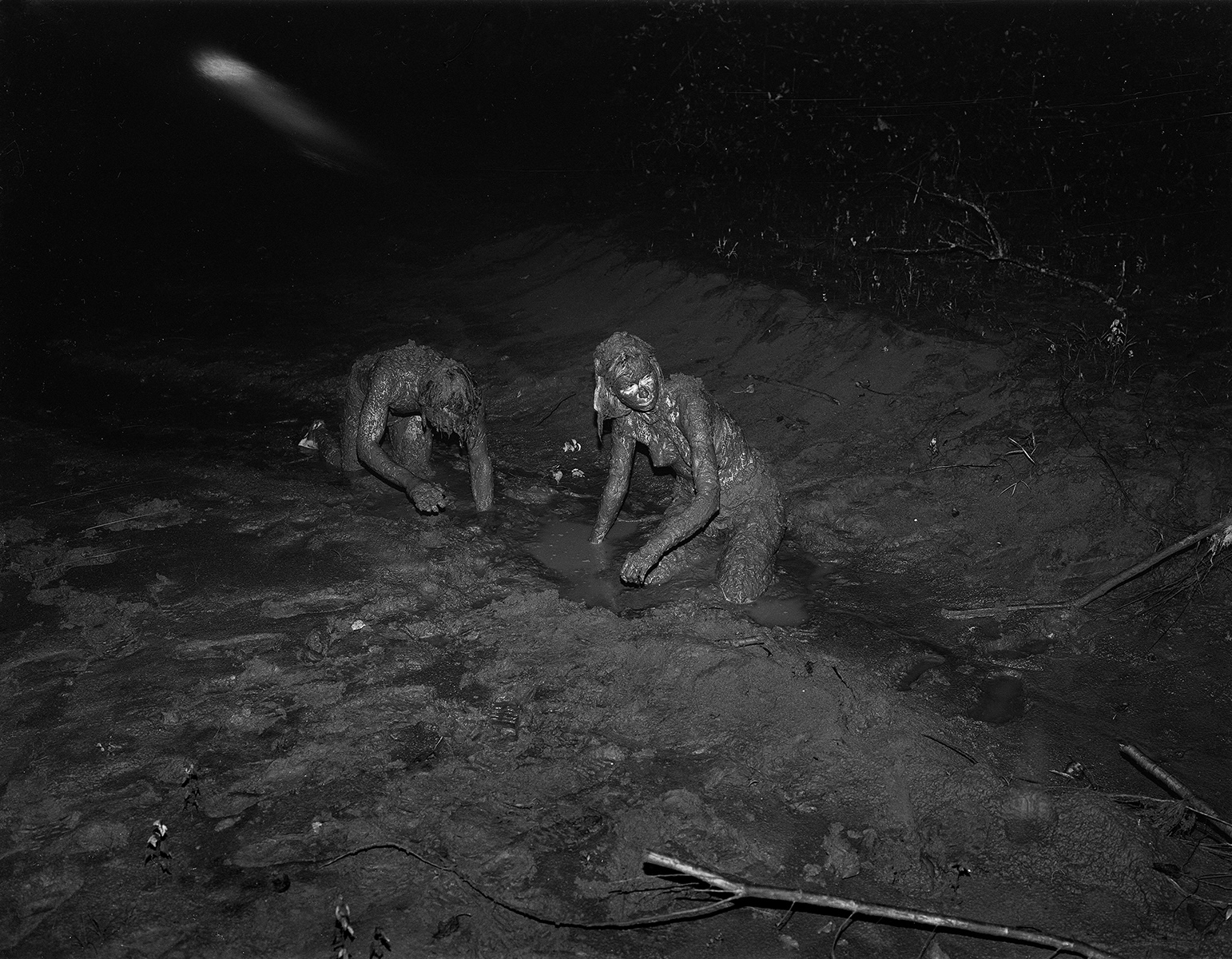
JM: It’s been three years since you released your last book At Night Gardens Grow. What has changed in that time?
PG: It’s often hard for me to look at At Night Gardens Grow without feeling a sense of alienation. It’s almost as if I made that book in a past life. In some sense I sort of did. There is a sense of anxiety in that book. Within the few years that I was making that work my life was extremely chaotic: I was working for a union as a janitor, cleaning bathrooms for a college filled with jocks and rich exchange students, some of whom would bully me, then soon after I was working around 50 hours a week as an elderly caregiver in a large mansion in the middle of the woods. I was getting home from work completely exhausted, eating a quick dinner, then leaving the house to wander around and make these super time-consuming photographs in the middle of the night.
I still look back at that time like “How the hell did I manage to do that?” The truth is I was very burnt out, avoiding facing my problems and not really taking care of myself. This is very apparent when I look at that book; trying to escape pain by finding beauty and wonder in my surroundings. Flowers Drink the River is coming more from a place of self-love and respect, and a feeling of being more grounded. The hardships are still there but it’s not the driving force to me wanting to find beauty in my life.
JM: Your work almost exclusively takes place at night. Is there a reason for this?
PG: I’ve felt the safest at night for most of my life. The reasons for that have changed over the years but one constant has been a fear of people. In the countryside people go to bed – or at least stay inside – and lock their doors when it gets dark. Since transitioning the night has given me a new sense of sanctuary and freedom. I don’t typically have to worry about hauling a large camera around in strange locations and setting up for a few hours, the only things I’ll encounter are deer, porcupines, foxes, spiders, trees and grass. If I were out during the day in the fields, or on some abandoned property, I would certainly be questioned or harassed or chased away.
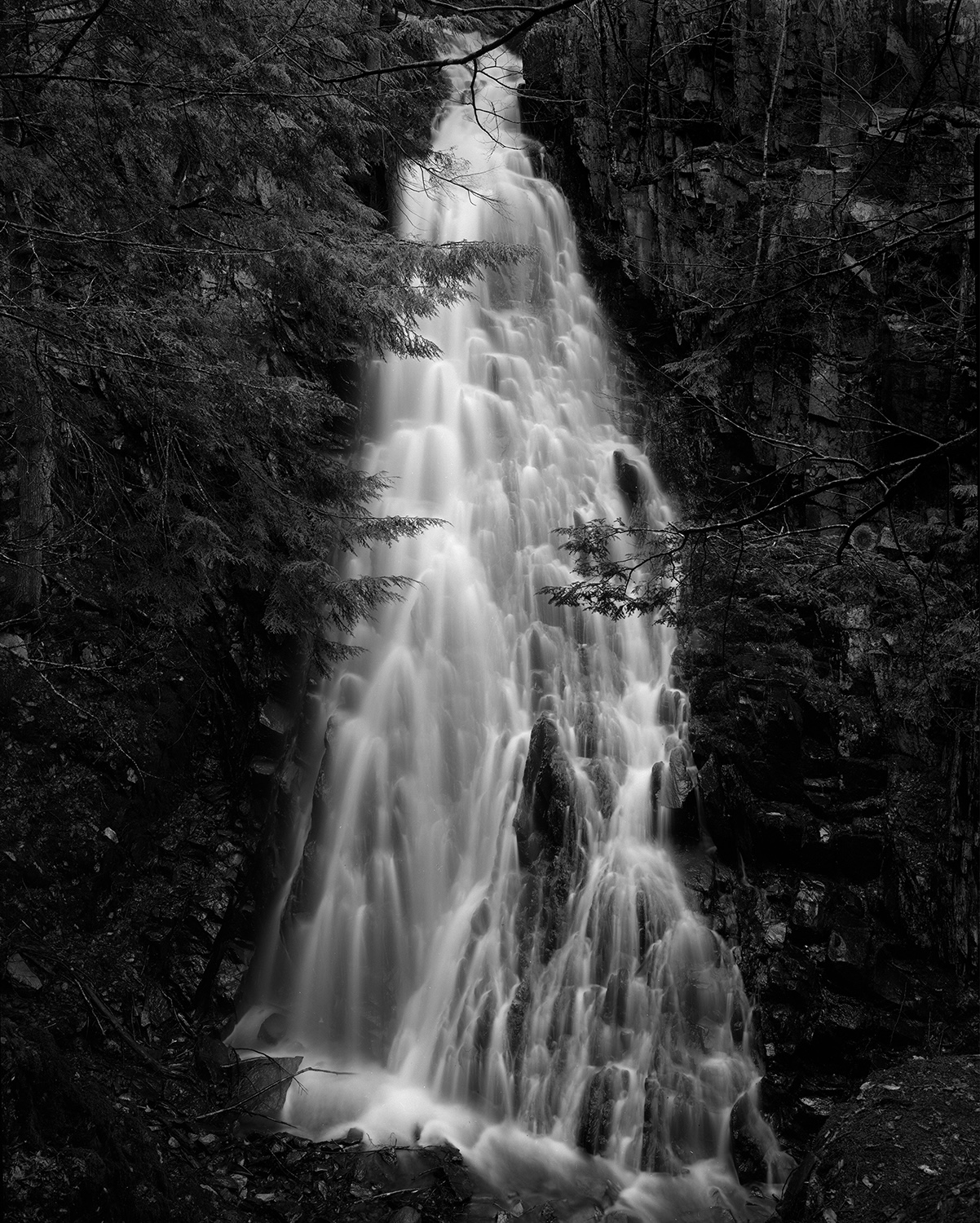
JM: What influences your practice?
PG: Hyperpop, Enya, trap hi-hat rolls, distortion, country music, demolition derbys, mud wrestling, the river, oestrogen, my cats, my chosen family, dirt covered clothes, N64, VHS tapes, abandoned houses, dust, the woods, delinquency, trespassing, shoplifting, country girls, country gays and “redneck shit” – minus the ugly bigotry, racism and hatred that most city and suburban people would associate with that term.
JM: Looking at your photographs I am struck by the delicacy and patience with which you must work. Are you drawn to subjects which are fragile or require slowness?
PG: I am in awe of the small things on this land. Insects, spider webs, all things that can so easily be lost if I’m not careful, moving slowly, and paying attention. Patience and care have been a practice in both my personal life and in my art. I love working with fragile things that can fall apart or fly away at any moment. It forces me to really appreciate their presence and intricacy. Especially with spider webs.
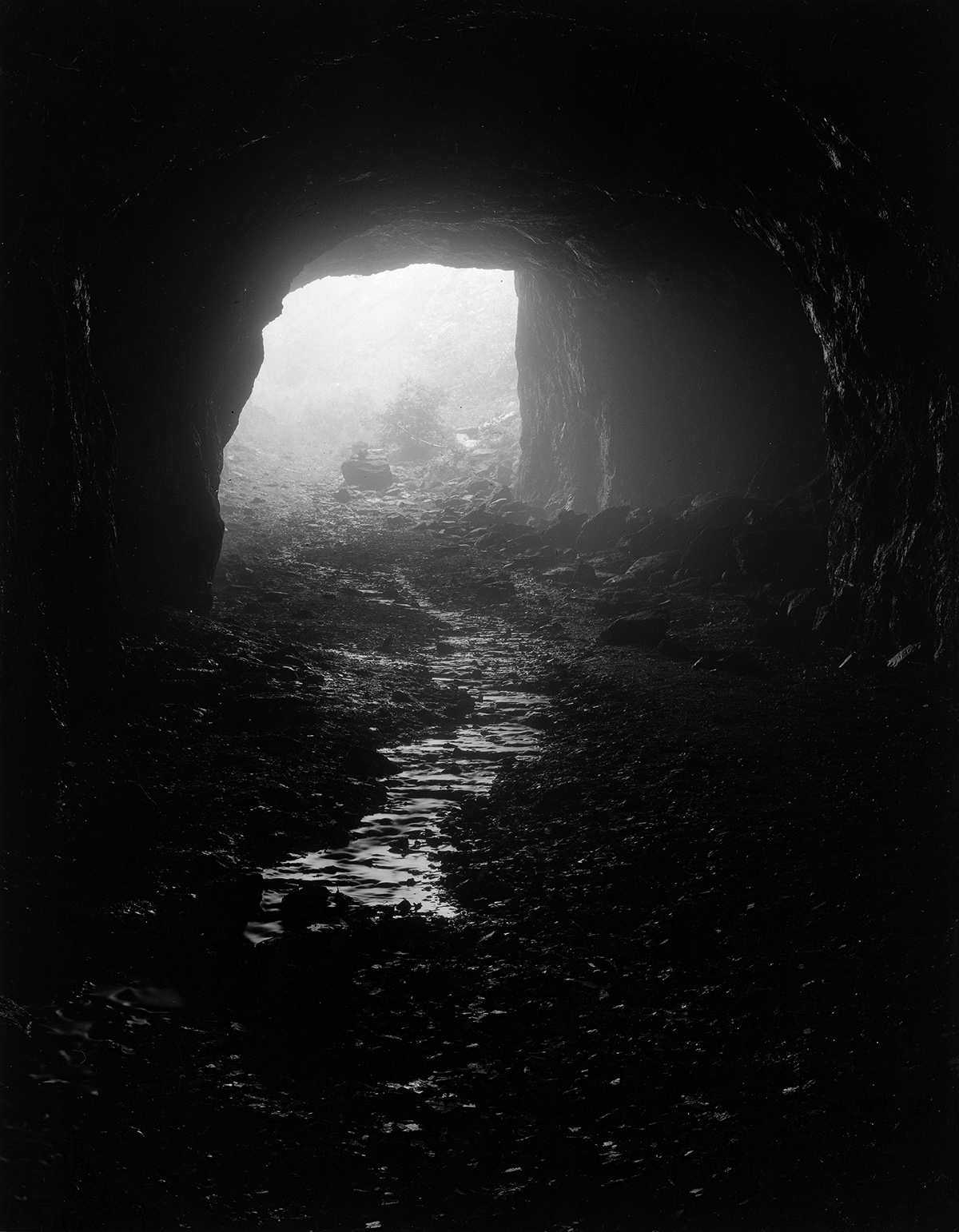
JM: You are more present in this book than in At Night Gardens Grow, both in the photographs and how the work is narrativised. What informed this decision? Are there parts of yourself implied in previous bodies of work which are more obvious or resolved here?
PG: I think this is the first project I’ve worked on where I actually ever felt like myself while making the work. This work is more of an embrace of the things that I have in this life. While before I think I was latching onto things that weren’t a part of my life, or like holding onto things that weren’t serving me. I’ve always photographed people and things I am close to, and that I love, but I think my intention was more questioning what was there rather than embracing. I am no longer trying to go outside of my comfort zone to make photographs. I don’t believe in that any longer. I want to only show the things that bring me joy and comfort in my life.
JM: You’ve described your work as being, among other things, about dysphoria and euphoria. What does euphoria mean for you?
PG: Euphoria is a recent feeling of “wow this is what it feels like to have a body that feels like my own” – I am no longer numb.
Flowers Drink the River is available now

